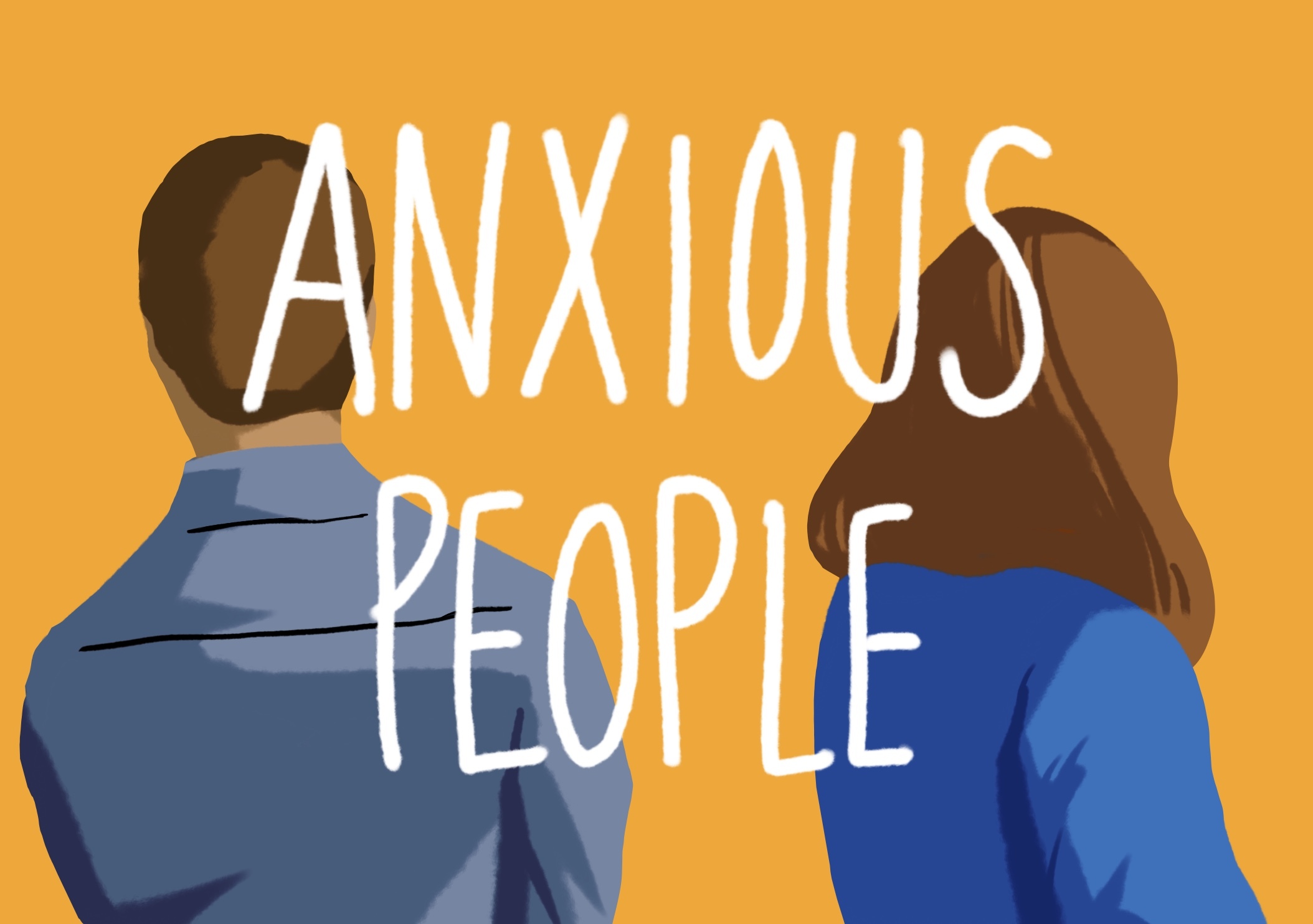Content warning: this review mentions suicide and mental health issues.
Welcome to “Lately in Literature with Leyla.” I will be reviewing new book releases to keep you updated on some of the best contemporary fiction. Join me to pick up your next read!
Fredrik Backman’s newest release is one of the funniest and most wholesome reads I have picked up in months. The book, which was recently adapted as a Netflix mini-series, shows incredible emotional dexterity: making you giggle and cry on the same page.
The book begins in a small Swedish town. An apartment open-house is interrupted before it even begins when a robber, who had just failed to rob a cashless bank, barges into the apartment and takes the eight strangers there hostage. After demands of pizza and fireworks, the hostages are let go, but there’s one person the police miss as everyone exits the apartment … the robber.
The chapters include interviews with the hostages conducted by the local father-son police duo, Jim and Jack. Having had no hostage experience before, embarrassed of reaching out to their superiors in Stockholm, and dealing with familial issues of their own, Jim and Jack go through a series of fruitless interviews investigating an apathetic banker, an old renovator couple, an expecting couple, a real estate agent, an elderly woman and a mysterious man in a bunny costume.
Despite its set-up, “Anxious People” is not a crime story, and it is not plot-driven. If you try to read this book like a typical crime mystery, decoding clues as the novel moves along, you will be sorely disappointed. These hostage interviews will not help you identify the robber, and attempting to follow the book’s hints will only frustrate you. This book is not a race; it must be read like a gentle journey. While the interview-driven narratives might seem repetitive at first, rolling through the interconnected backstories of the idiosyncratic characters will be a pleasant experience as you watch the mystery slowly unravel.
This book is not about hunting down the robber or punishing the guilty but is instead a story of forgiveness. It is an appreciation of humanity. It is the story of a group of strangers who at first glance have nothing to do with one another, but despite their obliviousness, are interconnected through a bridge, a therapist, their small town, childhoods and more. The mysterious identity of the robber unravels itself as the hostages bond over their shared experience. However, it is not only the shared experience of having been a hostage that bonds the bunch but the shared human experience of being filled with anxiety.
Like the robber, the hostages have all made mistakes and carry regrets. They all struggle to function as adults as they work to discover how the world works and what their part in it is. When these strangers first enter the competitive and apathetic environment of the open-house, in a sense they are all lonely, cognizant of only their own anxieties. But, as the night gets zanier, their worries ease.
“Some people accept that they will never be free of their anxiety, they just learn to carry it. She tried to be one of them. She told herself that was why you should always be nice to other people, even idiots, because you never know how heavy their burden is,” writes Backman, highlighting that this isolating sense of anxiety is a common struggle.
Amid these pages Backman also focuses on mental health, with the trauma of witnessing a suicide as a central plotline. Through his explorations of the human condition, Backman creates conversations around depression, portrays various impacts of stress and tackles the long-term effects of trauma.
At its core, Backman’s latest novel is a reminder of our common human struggle and how often we choose to ignore its universality. These heavy messages are delivered sensationally through hilarious dialogues and emotive flashbacks. ”Anxious People” convinced me that perhaps we aren’t as lonely in our own story as we’d have thought.
“This story is about a lot of things, but mostly about idiots,” Backman writes. “So it needs saying from the outset that it’s always very easy to declare that other people are idiots, but only if you forget how idiotically difficult being human is.”
Editor’s Note: This article is a review and includes subjective opinions, thoughts and critiques.
